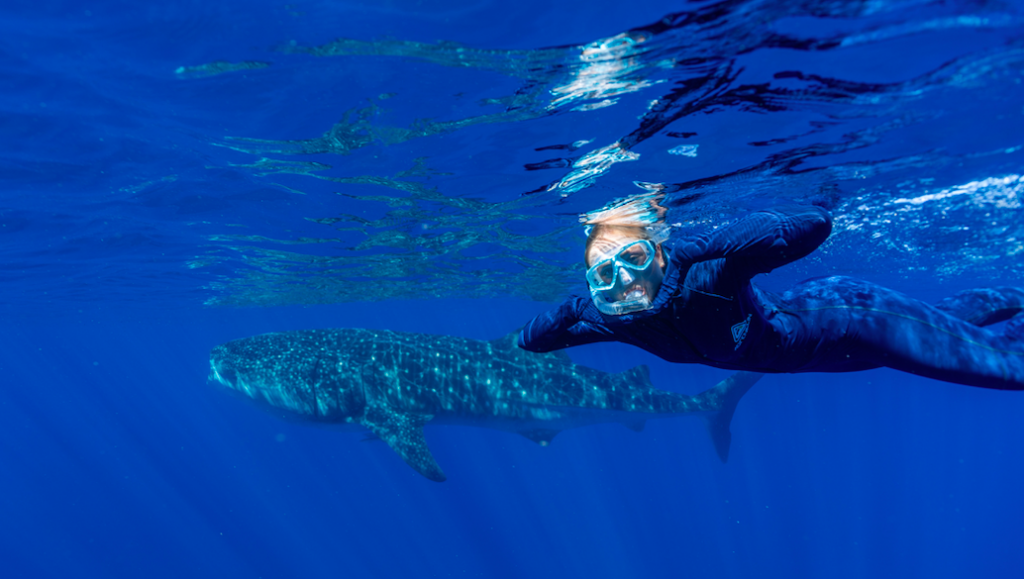How Studying Abroad in Australia Gave Me a New Appreciation for Sharks


Surrounded by deep-blue water for miles, the other seven snorkelers in my tour group and I stay completely still and wait. Through our diving masks, all eyes are trained on one spot in the water. I gasp underwater as I finally see it. Emerging out of the deep is the ocean’s biggest fish, a whale shark. This one is a 20-foot-long female, and she swims idly past us, opening and closing her huge mouth to feed on krill. She is black with her own unique pattern of white stripes, and my eyes tear up as I realize she is one of the most beautiful things I have ever seen.
Gentle giants

Swimming with whale sharks in Ningaloo Reef in Western Australia—home of the world’s most sustainable whale shark tourism—changed the way that I think about ocean life, especially sharks. Through talking to Emma, the on-board marine biologist, I learned that little is known about these elusive creatures, though they are hunted and injured by tourism in other parts of the world.
I interacted a lot with sharks while abroad in Australia, and each time it cemented my opinion that they need more protection. Wading in the shallow waters of Whitehaven Beach in the Whitsunday Islands, baby lemon sharks swam around my feet. Night diving in the Great Barrier Reef, armed with only a flashlight, I watched white tip reef sharks hunt. They swerved in and out of the coral, occasionally brushing my arm or leg, never hurting me or even noticing me. While I pursued scuba certification off the coast of Sydney, I had fun looking under rocks and coral for sleeping Wobbegong sharks, blending in with the ocean floor. At every step, I fell more and more in love with these wonderful animals and shared my experiences with anyone who would listen.
Let’s change the narrative
Think about the phrase “shark-infested waters.” How can an ocean be ‘shark-infested’ if that ocean is their home? Not every shark is docile. Sharks are wild animals and should be treated as such. They are carnivorous and hunt to stay alive, so it is important to research your swimming destination and know what kinds of sharks frequent those areas.
Every time you step into the ocean, you are a guest. If you should be so lucky as to encounter a shark, just observe.
Darin J. | Vanderbilt University | University of New South Wales | Spring 2025